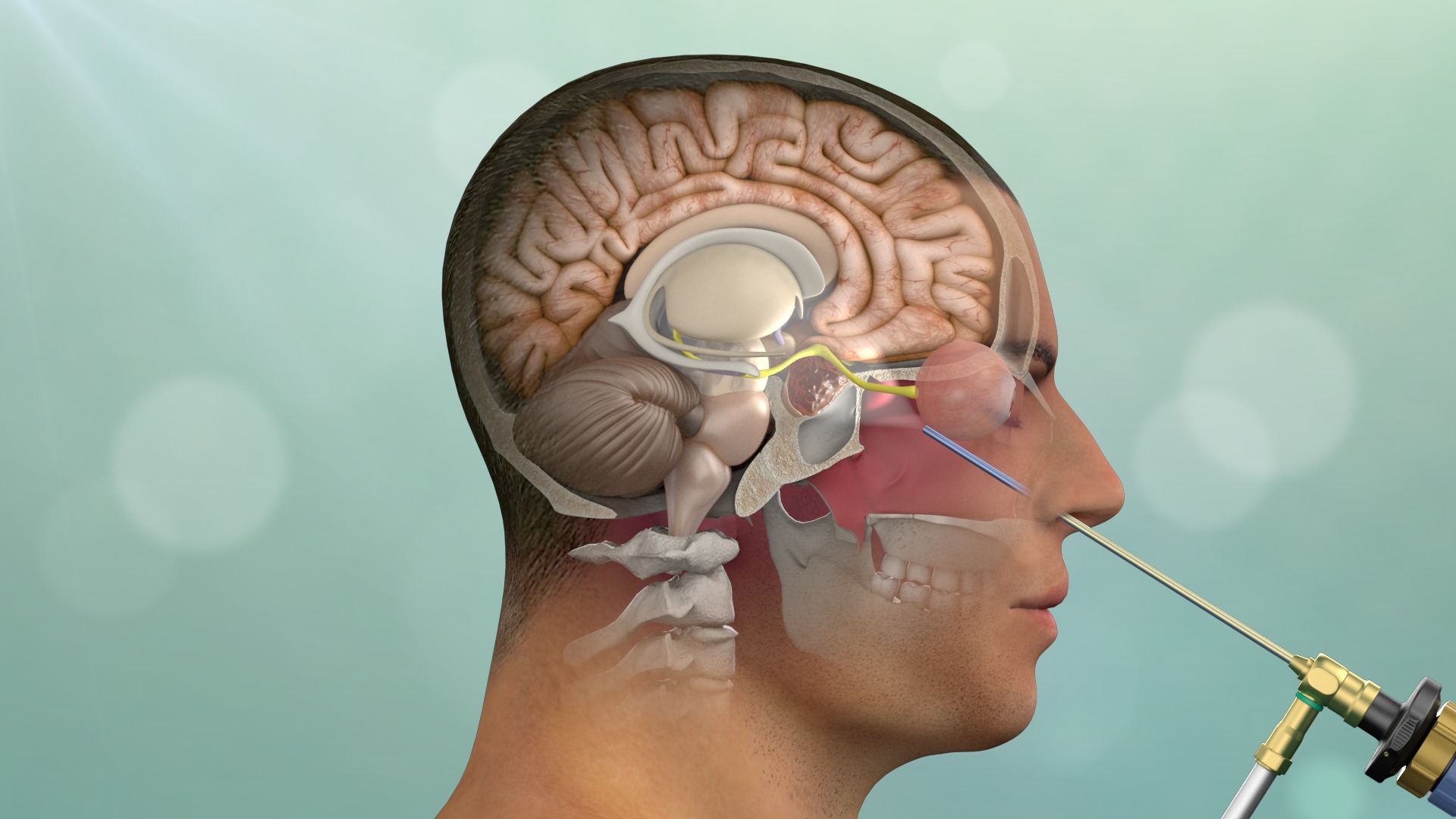Endonasal Pituitary surgery Indore
Services
Quick Enquiry
Endonasal Pituitary Surgery in Indore – Advanced, Scar-Free Brain Tumor Treatmen

What Is Endonasal Pituitary Surgery?
- Pituitary adenomas (noncancerous tumors)
- Hormone-producing tumors (like prolactinomas or growth hormone-secreting adenomas)
- Craniopharyngiomas
- Rathke’s cleft cysts
- Clival chordomas & midline skull base tumors
Signs You May Need Pituitary Tumor Surgery
- Persistent headaches
- Vision problems (especially loss of peripheral vision)
- Hormonal imbalances (irregular periods, weight gain, mood swings)
- Fatigue or unexplained weakness
- Enlarged hands, feet, or facial features (in acromegaly)
How Is Endonasal Pituitary Surgery Performed?
1. Diagnosis & Planning
2. Surgical Procedure
- Performed under general anesthesia
- A high-definition endoscope is inserted through the nostrils
- Tumor is visualized and carefully removed using precision instruments
- Surgical navigation tools (“GPS for the brain”) guide safe access
- Doppler ultrasound helps avoid injury to nearby arteries
- No facial or skull incision needed
3. Recovery & Post-Op Care
- Short hospital stay (2–3 days)
- Return to normal routine within 1–2 weeks
- Regular follow-ups and hormone monitoring
Why Choose Dr. Anil Gwaliorkar for Pituitary Tumor Surgery in Indore?
- Expertise in minimally invasive skull base surgery
- High success rate with endonasal pituitary surgery
- Use of HD endoscopes, image guidance, and Doppler for safety and precision
- Collaborative care with endocrinologists and neurosurgeons
- Trusted by patients for the best removal of pituitary gland in Indore when necessary
Benefits of Endoscopic Pituitary Surgery
- No visible scars or facial disfigurement
- Lower complication rates than traditional surgery
- Precise tumor removal with minimal impact on surrounding brain structures
- Faster recovery time and shorter hospital stays
- Effective symptom relief and hormonal balance restoration
Social Share
Frequently Asked Questions (FAQs) – Endonasal Pituitary Surgery in Indore
- A diagnosed pituitary tumor or cyst
- Vision loss or headaches due to tumor pressure
- Hormonal imbalance caused by the tumor
- Failure of medications to control hormone levels
The average endonasal pituitary surgery takes 2 to 4 hours, depending on the size and complexity of the tumor. Most patients can go home within 2–3 days after surgery.
As with any surgery, risks include:
- Nasal congestion or drainage
- Temporary diabetes insipidus (frequent urination & thirst)
- Hormone imbalance (which can usually be corrected with medication)
- CSF leak (rare, but repairable)
When performed by an experienced surgeon like Dr. Anil Gwaliorkar, the procedure is very safe and complications are rare.
It depends. If the tumor was affecting hormone production or if a part of the gland was removed, temporary or long-term hormone therapy may be needed. We’ll monitor your hormone levels closely post-op to guide treatment.
In most cases, yes. If your vision was affected by pressure on the optic nerves, surgery usually relieves that pressure, and many patients notice a significant improvement in vision within days to weeks.
Most patients can return to light activities or work within 1–2 weeks. Avoid strenuous activity, heavy lifting, or nose-blowing for a few weeks as your body heals.
You can consult Dr. Anil Gwaliorkar, a leading ENT and skull base surgeon offering pituitary tumor surgery in Indore using the latest endoscopic techniques. His multidisciplinary approach ensures excellent outcomes and compassionate care.
Quick Enquiry
